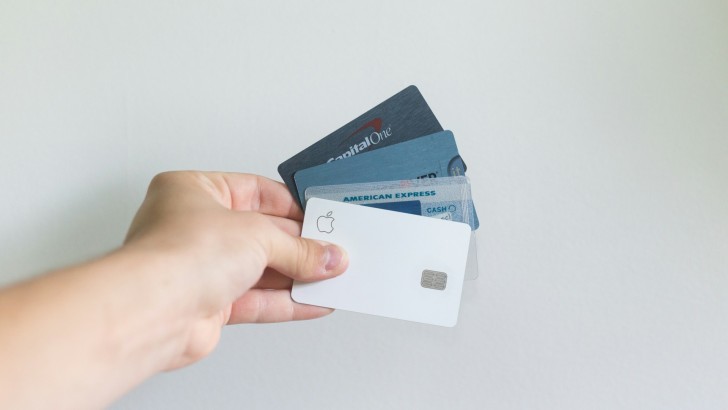A business credit card can be a powerful tool to help manage expenses, build business credit, and separate personal and company finances. But before you can swipe your way to rewards and expense tracking bliss, there's one important hurdle: the application process.
One of the biggest reasons applications are delayed or denied is a lack of proper paperwork. In this guide, we’ll walk you through a checklist of must-have documentation to apply for a business credit card, whether you’re a startup founder, freelancer, or small business owner.
Let’s make sure your application gets the green light.

Why Documentation Matters
When you apply for a business credit card, issuers need to confirm two key things:
- You are a legitimate business entity
- You (and your business) are capable of repaying any charges
The right documentation gives banks and credit issuers confidence in your financial stability and business credibility. Having this paperwork ready not only speeds up the approval process but also positions you as a responsible applicant.
Business Credit Card Application Documentation Checklist
Here’s a detailed checklist of documents and information you should have on hand before applying:
1. Legal Business Name and Structure
What You’ll Need:
- Registered business name
- Business structure (e.g., sole proprietorship, LLC, corporation)
- DBA (Doing Business As), if applicable
- Business start date
Why It Matters: Issuers verify your business's legitimacy by checking registration databases. Make sure the name and structure match your other documents.
2. Employer Identification Number (EIN) or Social Security Number (SSN)
What You’ll Need:
- EIN if your business is incorporated or has employees
- SSN if you’re a sole proprietor or applying under your personal credit
Why It Matters: Your EIN or SSN is used for identity verification and tax tracking. Issuers use this number to pull credit reports and confirm your financial background.
3. Business Contact Information
What You’ll Need:
- Business address (physical or home office)
- Business phone number
- Business email address
Why It Matters:This info helps verify that your business is real and operational. Issuers sometimes cross-reference this with public records.
4. Industry Type and Business Description
What You’ll Need:
- Type of industry (e.g., consulting, ecommerce, marketing)
- Brief description of business activity
Why It Matters: Certain industries—like gambling or cryptocurrency—are flagged as high-risk. Being transparent and specific can help avoid delays.
5. Annual Business Revenue
What You’ll Need:
- Total gross revenue for the past year
- If new: Projected revenue (be realistic)
Why It Matters: Issuers use your revenue to evaluate creditworthiness and determine credit limits.
6. Estimated Monthly Business Expenses
What You’ll Need:
- Approximate monthly spend on business-related expenses (e.g., software, travel, supplies)
Why It Matters: This helps the issuer determine if your spending habits align with the card product you're applying for.
7. Time in Business
What You’ll Need:
- Business start date
- Number of months/years in operation
Tip: If you’re just starting out, consider fintech credit cards or secured business cards as entry points.
8. Business Bank Account Details (Optional but Helpful)
What You’ll Need:
- Business checking account info
- Last 2–3 months of bank statements (if requested)
Why It Matters:Some modern card issuers (like Brex or Ramp) evaluate real-time cash flow by linking to your bank account.
9. Personal Identification & Credit Information
What You’ll Need:
- Full legal name
- Date of birth
- Home address
- Social Security Number (SSN)
- Personal income (especially for sole proprietors)
Why It Matters:Most business credit cards require a personal guarantee, which means you’re personally liable for the debt. A good personal credit score (typically 680 or higher) improves approval chances.
Tip: Check your personal credit report before applying and fix any errors to avoid surprises.
10. Additional Supporting Documents (if requested)
Depending on the issuer, you may be asked for further documentation, especially for high-limit cards or new businesses:
- Business license or permits
- Articles of incorporation or operating agreement
- Utility bill (for address verification)
- Tax returns (business or personal)
- Invoices or client contracts
Pro Tips for a Smooth Application Process
- Be consistent: Make sure your business name, address, and other details match across all documents.
- Stay honest: Don’t exaggerate revenue or years in business. Issuers often verify.
- Apply strategically: Choose cards that match your current business size and credit profile.
- Use a checklist: Keep this list handy whenever applying for a new card.
What Happens If You're Missing Something?
If you're missing key documents—like an EIN, proof of revenue, or business license—it doesn’t necessarily mean you can’t get approved. Here are some alternatives:
- Apply with a personal guarantee
- Use personal income if you're a sole proprietor
- Start with secured or fintech business cards that don’t require heavy documentation
Over time, as your business grows, you can move on to more premium business credit card products.
Conclusion
Applying for a business credit card is a smart move, but it requires preparation. With the proper documentation in hand, you can avoid delays, minimize the risk of rejection, and start leveraging credit for growth.
Use this checklist to stay organized and confident throughout the process. Whether you’re running a one-person consulting business or scaling a startup, the right paperwork puts you one step closer to financial flexibility.
 Editorial staff
Editorial staff

 Editorial staff
Editorial staff


